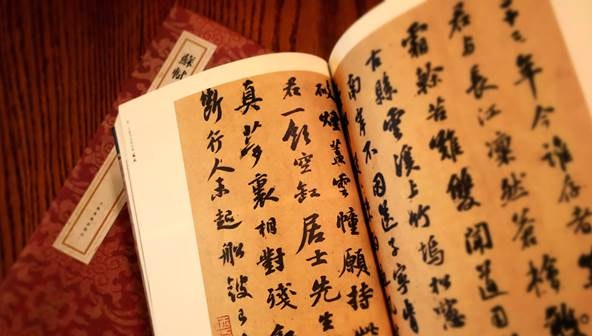
東坡詞如秋夜的星光、月色,既遙遠又親近。我們以愉悅的心情展讀《東坡詞》,徜徉於〈水調歌頭〉、〈江城子〉、〈定風波〉與〈念奴嬌〉等作品裡,如晤故人,自能心領神會,除了可以看見天才駕馭技巧的藝術表現,更可貼近東坡的內在世界,親切感受一個偉大心靈的躍動,以豐富我們的生命境界,讓我們知曉如何在人情世界中尋得心靈的安頓。
What's inside
Syllabus
課程資訊
本課程由臺灣大學劉少雄教授講授,旨在帶領大家賞讀東坡詞,兼顧作家與文體、情感與形式等多重詮釋面向,讓我們更了解東坡為詞的文學與人生意義,進而深入體察東坡的情意世界及其詞的美感特質。課程以影片的教學為主, 並搭配每週問題討論以及課後作業。
第一講:詞體與人情─東坡填詞的動因及其詞的特質
Read more
Syllabus
Good to know
Save this course
Reviews summary
東坡詞的藝術人生
Activities
收集課堂材料
Show steps
定期收集課堂材料,包括講義、作業和評分標準,有助於學習進度的跟蹤和知識的整理。
Show steps
-
準備專門的資料夾或筆記本
-
定期收集講義、作業和評分標準
-
分類整理收集的材料
觀看東坡詞賞析視頻
Show steps
通過觀看東坡詞賞析視頻,了解專家學者的見解,加深對詞作的理解。
Show steps
-
觀看視頻,並作筆記記錄
-
蒐集東坡詞賞析視頻
-
思考視頻中的觀點,並與自己的理解進行比較
Show all two activities
收集課堂材料
Show steps
定期收集課堂材料,包括講義、作業和評分標準,有助於學習進度的跟蹤和知識的整理。
Show steps
- 準備專門的資料夾或筆記本
- 定期收集講義、作業和評分標準
- 分類整理收集的材料
觀看東坡詞賞析視頻
Show steps
通過觀看東坡詞賞析視頻,了解專家學者的見解,加深對詞作的理解。
Show steps
- 觀看視頻,並作筆記記錄
- 蒐集東坡詞賞析視頻
- 思考視頻中的觀點,並與自己的理解進行比較
Career center
Poet
Teacher
Writer
Professor
Editor
Literary Agent
Journalist
Translator
Librarian
Archivist
Museum curator
Cultural Heritage Manager
Historian
Arts Administrator
Cultural Anthropologist
Reading list
Share
Similar courses
OpenCourser helps millions of learners each year. People visit us to learn workspace skills, ace their exams, and nurture their curiosity.
Our extensive catalog contains over 50,000 courses and twice as many books. Browse by search, by topic, or even by career interests. We'll match you to the right resources quickly.
Find this site helpful? Tell a friend about us.
We're supported by our community of learners. When you purchase or subscribe to courses and programs or purchase books, we may earn a commission from our partners.
Your purchases help us maintain our catalog and keep our servers humming without ads.
Thank you for supporting OpenCourser.



